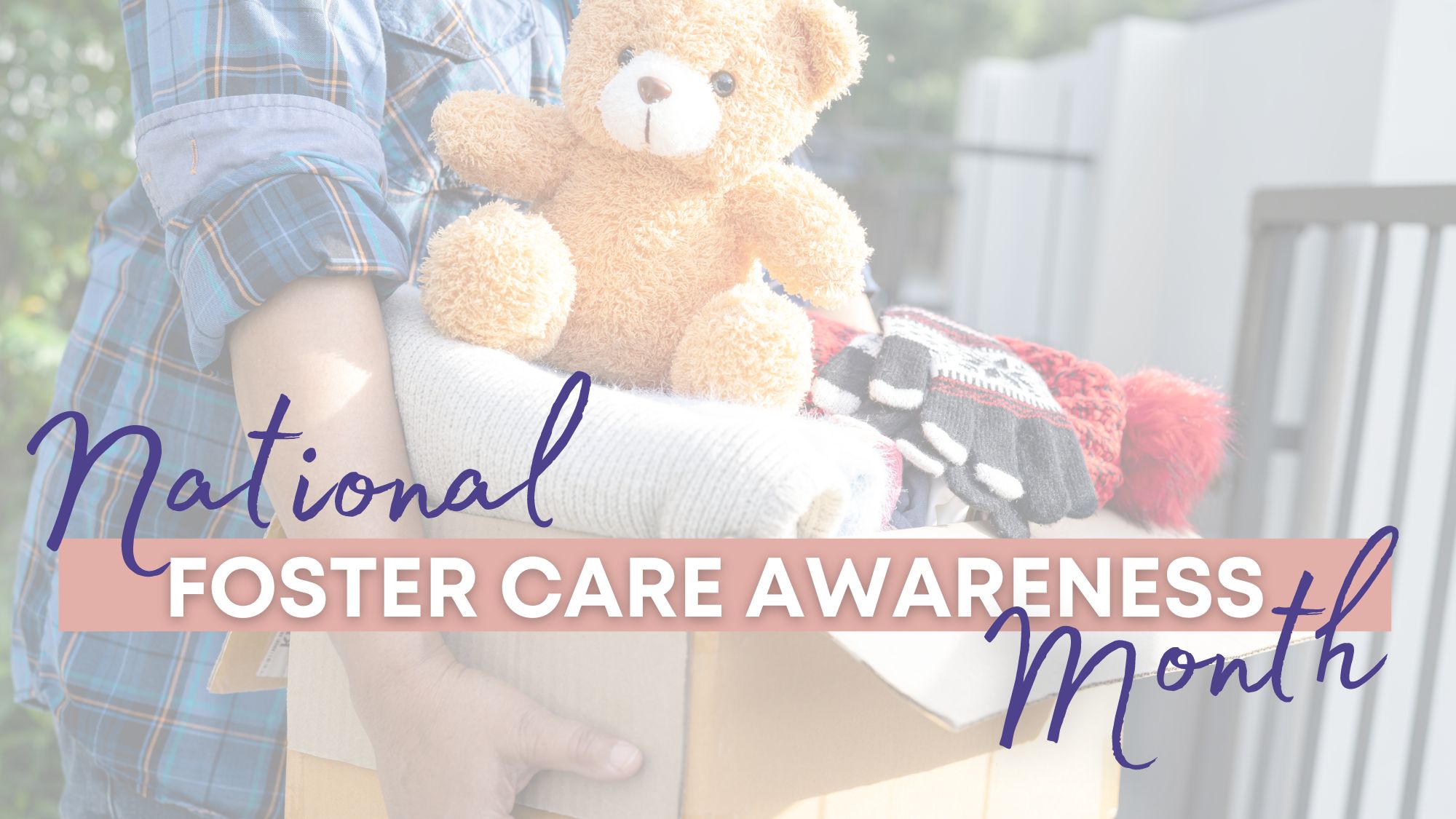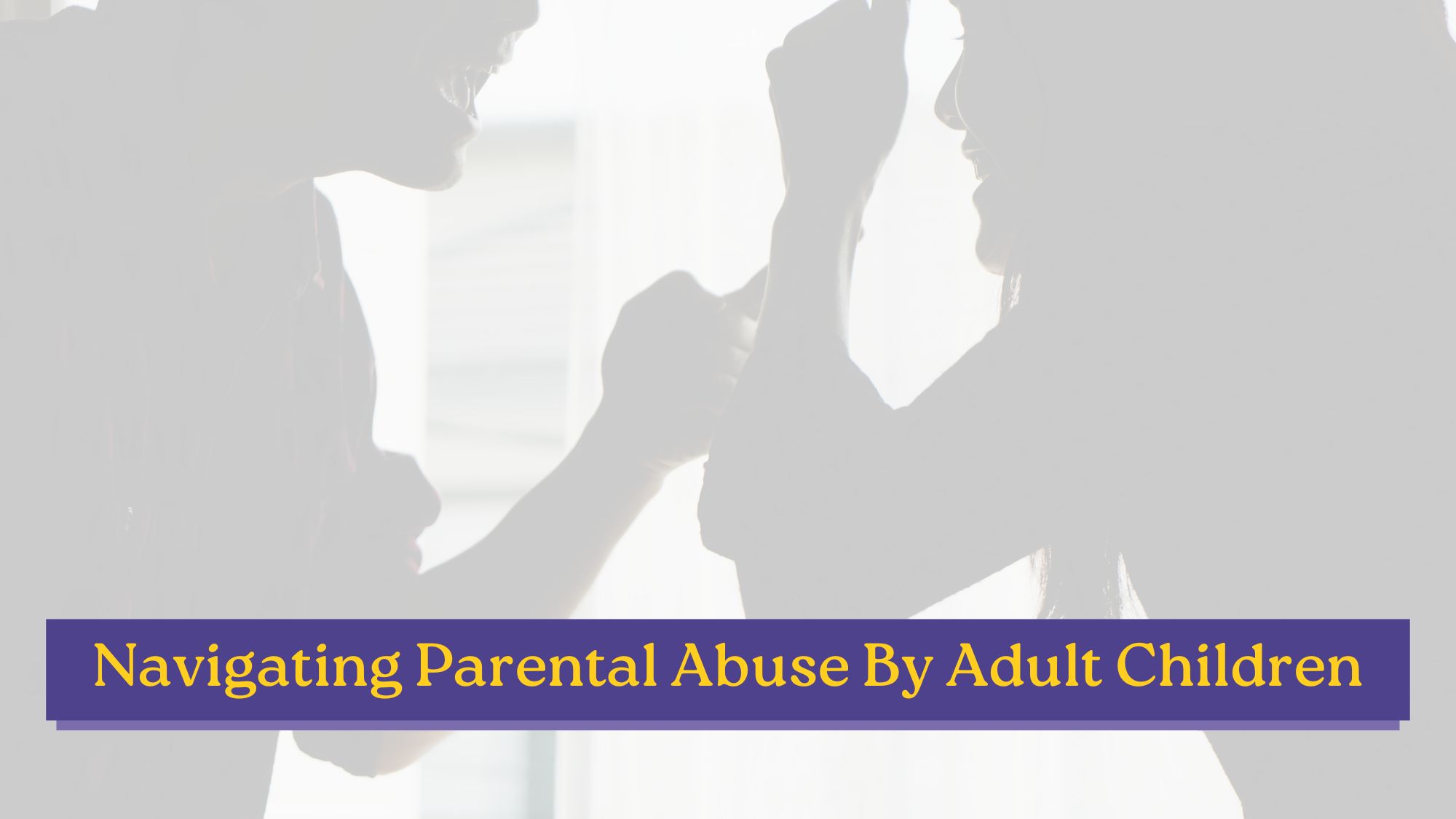Did you know that May is National Foster Care Awareness Month? During this month, we slow down our busy schedules to notice the foster care families around us.
If you are like my family, life with children can sometimes feel like a blur. You rush to school, you rush home, and dinner needs to be made. You do homework, arrange bath times, and sometimes find time for a game night or a fun activity. Weekly softball practices, games, and dance rehearsals add to the hustle. Prayerfully, we find time for morning or nightly devotionals and find ways to prioritize God in the blessings He has given us.
Yet, in the hustle and bustle of our lives and communities, we sometimes forget to notice those around us: the neighbor who doesn’t seem to come out of the house very often, the child in your daughter’s class who comes to school infrequently and sleeps through class when she does, and the single mother or father you seem to always run into in the grocery store who looks disheveled and distressed.
We may know many who may be struggling, but we often don’t know what to say or do to help. In fact, in the rush of our days, they may become invisible to us. We may not be aware that families in our communities may be at risk of an encounter with the child welfare system at any given time.

What is Foster Care Awareness Month?
Foster care is a temporary solution for children whose families cannot safely care for them and do not have a safe relative or adult to temporarily care for them. In these instances, state-approved caregivers (foster parents) who have received background checks, education, and home inspections temporarily care for these children.
Since 1988, U.S. presidents have highlighted May as Foster Care Month or “Foster Care Awareness.” May is a time when the church, individual believers, and parachurch organizations can come together to recognize all the key partners in foster care and why they so deeply need our support.
5 Things To Be Aware of This Foster Care Awareness Month
1. Children in Foster Care
Children in foster care have all experienced some level of trauma before their removal from their biological families, but almost all when they were removed from their homes. Although children are removed from their biological families because of safety concerns, it doesn’t make the experience any less traumatic.
As believers, we should be understanding of the fact that trauma changes the brain, makes children less trusting, and can impact their ability to grow up mentally, emotionally, and physically in an optimal way. Our desire should be to show each child the love of Christ, but establishing trust takes time. Understanding childhood trauma and learning how we can help children heal is paramount. Education is essential as we learn to care for vulnerable children in our communities.
2. Biological Families
It is so easy to place blame and condemnation on biological families who temporarily lose their children to the foster care system. However, it is important to acknowledge that many of the parents who are involved in the foster care system spent some point of their lives in the foster care system as well. Grace should be shown to them, and prayers should be given for them to safely reunite with their children.
3. Teens Who Age out of Foster Care
While it is the hope that every child that enters into the child welfare system experiences PERMANENCY (a stable, loving, and permanent home), many do not for various reasons. Every year, 20,000 children exit the foster care system without a stable and loving family to call their own. Unfortunately, they experience homelessness, early parenthood, and criminal justice encounters. Teenagers who exit foster care with a safe, loving advocate have better outcomes. Finding a way to care for the teens in foster care in your community may be a way God is calling you into this work.

4. Children With Siblings Need Foster Parents
Two out of three children in foster care have one or more siblings. In fifty percent of cases, they are separated into different foster homes due to insufficient numbers of foster homes that are equipped and able to care for sibling sets. While removal from their parents may be traumatic, being removed from their siblings can be even more challenging. How may God be calling your family to step into foster care in a radical way?
5. Foster Parents Need Our Support
Nationwide, there are thousands of foster families intersecting into the challenging world of caring for children in foster care. Yet, there is always a deficit in comparison to the number of children in foster care in any given state. There are foster parents all around us who need tangible and emotional support.
Just as families in crisis may not be easy to spot, the same can be said of foster parents. Look for the foster parents in your churches and in your area, support them, and pray about how God may be calling you to step into fostering to be co-laborers. You can make a large impact by engaging with your church to begin intentionally caring for and ministering to the foster parents in your community. Find encouragement for how your church community can support its foster families here.
Focus on the One
The approximately 400,000 children intersected into the foster care system may seem overwhelming, but chances are it won’t seem so out of reach if you focus on your local community. A few children in every community equals thousands on a state and national level. We can feel accountable for our own community and our neighborhood without overwhelm and be mobilized to be the hands and feet of Jesus. While there are hundreds of thousands nationwide, there are likely few in our actual neighborhoods. Find statistics for your state here. Yet, what does Jesus say about the few?
Suppose one of you has a hundred sheep and loses one of them. Doesn’t he leave the ninety-nine in the open country and go after the lost sheep until he finds it? And when he finds it, he joyfully puts it on his shoulders and goes home. Then he calls his friends and neighbors together and says, “Rejoice with me; I have found my lost sheep” (Luke 15:6).
May is an ideal time to recognize that foster care awareness should be at the forefront of our minds monthly as long as there are children in need of help. This May, I challenge you to think of the children in your own backyard, in your neighborhood, and on your street. How may God be calling you to be accountable for the needs of those around you?

The Workers are Few
Jesus also says something else about “Few”: “The harvest is plentiful but the workers are few. Ask the Lord of the harvest, therefore, to send out workers into his harvest field” (Matthew 9:37).
There is no substitute for a loving home where a child can heal. There is also no substitute for a home where the love of Christ is so pervasive that it guides us into radical, missional, and bold love despite the costs. As we embrace the month of May this year and have an opportunity to highlight Foster Care Month in our churches and communities, pray about how God may be calling you into his plan for caring for the vulnerable.
Resources
If you are looking for further information this Foster Care Awareness Month, take a look at the following resources that are available to you.
- Understanding the Risk of Homelessness for Foster Care Youth
- Youth In Transition (Aging Out)
- Child Welfare and Foster Care Statistics
- Children in Foster Care – A Vulnerable Population At Risk
- Siblings and Foster Care Placement
- Foster Care Statistics
- Connie Maxwell Ministries
- Data and Statistics: AFCARS
©2024 Tana Dukes. Used with Permission.



